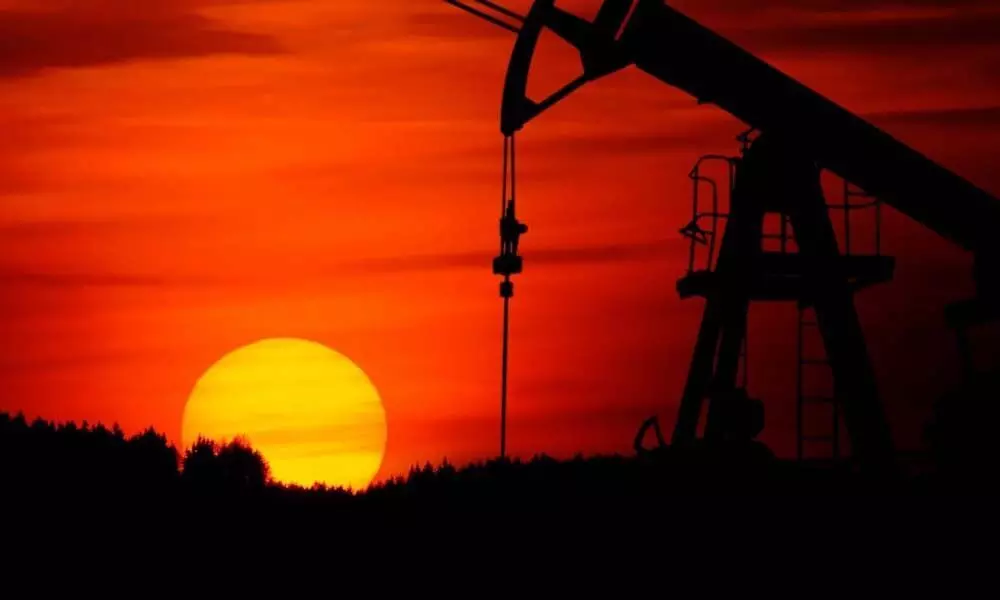Petrostates need to bridge $9 trn income gap in energy transition
Over 400 million people live in the 19 worst affected countries where declining fossil fuel revenues could see total government income fall by at least 20 per cent, leading to cuts in public services and job losses
image for illustrative purpose

New Delhi: OIL and gas producing countries face a multi-trillion dollar hole in government revenues over the next 20 years as the world decarbonises, with some needing strong international support to diversify their economies and avoid social and political instability, said a report from Carbon Tracker on Thursday.
For the first time it calculates that 40 petrostates could face an average 46 per cent drop in expected revenues from oil and gas if demand falls in line with tightening global climate policy and technological advances leading to a shortfall of $9 trillion.
Over 400 million people live in the 19 worst affected countries where declining fossil fuel revenues could see total government income fall by at least 20 per cent, leading to cuts in public services and job losses.
Half live in Nigeria, where a 70 per cent drop in oil revenues would cut total government income by a third. Angola, home to 33 million, could lose over 40 per cent of government income.
Many of the world's biggest oil and gas producers including the US, the UK, the Netherlands, China, India and Brazil also face major falls in revenues but they are not a focus of the analysis because their economies are less dependent on oil and gas.
Worldwide, all oil producing countries risk collectively losing $13 trillion by 2040 compared with industry expectations, a 51 per cent drop.
Report author Mike Coffin, senior analyst oil, gas and mining said: "It's in the interest of all nations to minimise global temperature rise and this means rapidly reducing our use of fossil fuels."
"But many countries are heavily reliant on oil revenues and the time to act on rebalancing their economies is now. Waiting for demand to fall will be leaving it far too late."
Andrew Grant, head of climate, energy and industry and co-author said: "Government oil revenues will shift dramatically as the market shakes out during the energy transition."
"Understanding the scale of the challenge and which nations are most vulnerable will help policymakers focus their efforts. Cushioning the landing for hundreds of millions will deliver better outcomes for both climate and human development."
"Beyond Petrostates: The burning need to cut oil dependence in the energy transition" calls on petrostates to act now to reduce their dependence on oil and gas revenues, by cutting public spending, raising new taxes, and restructuring their economies.
It warns that continuing to invest in new oil and gas projects risks creating stranded assets and wasting capital that would be better spent on developing sustainable new industries.
If they go it alone and seek to monetise their existing reserves while they can, oversupply is likely to destroy value for all, with falling prices quickly outweighing the benefit of increased production.
Many petrostates are already adopting measures to try to bridge the expected hole in their finances.
Several Middle Eastern countries have introduced value-added taxes and, with countries like Nigeria, Angola and Iran, taken steps to reduce subsidies.
Wealthy Gulf states are investing in industries like renewable energy and tourism. However, the scale of the challenge is huge, and the pace of transition accelerating.
The international community can help the most vulnerable countries, for example by supporting the development of new technologies, offering technical assistance for regulatory and tax reform, and providing capital.
The report notes that it is in the international community's interest to help petrostates successfully navigate the energy transition.
Reducing their dependence on fossil fuel production will make it easier for the world to meet global climate targets, and also help these countries avoid instability and social unrest as the global economy is decarbonised.

